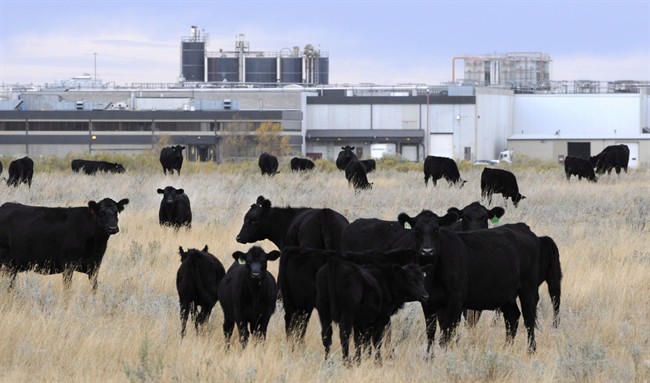An outbreak of E. coli infections at several Calgary day centres has infected more than 200 people, most of them children.

It’s not the first major outbreak of the food-borne illness, which is caused by bacteria that live in the feces of animals and is carried to humans through undercooked meat, unpasteurized food or contaminated water.

The E. coli variant known as 0157 is often the most virulent and can cause hemolytic uremic syndrome, which affects the kidneys and the ability of blood to clot.
Here’s a list of some of Canada’s major E. coli 0157 outbreaks:
1980: In one of the first recognized outbreaks of the E. coli, 14 Toronto-area children fell sick with hemolytic uremic syndrome and one of them eventually died. Doctors traced the outbreak to unpasteurized apple juice.
1982: An outbreak in an Ottawa nursing home affected 31 residents. One person died. Undercooked hamburger was the suspected source.
1985: Seventy-three residents and staff in a nursing home in London, Ont., fell sick after eating uncooked meat in sandwiches. Nineteen residents died.

Get weekly health news
1991: In what was then the Northwest Territories, 521 Inuit in six communities were sickened over several months. Contaminated beef and caribou were considered the likely sources of outbreaks that caused 22 cases of hemolytic uremic syndrome. Two people died.

1999: Dry salami was linked to an outbreak in British Columbia that infected 143 people.
2000: Canada’s largest outbreak occurred in Walkerton, Ont., when manure-tainted drinking water caused more than 2,300 cases. Seven people died.
2012: XL Foods recalled more than 1.8 million kilograms of beef in Canada and the United States from a processing plant in Brooks, Alta., after health officials confirmed that 18 Canadians tested positive for E. coli bacteria linked to meat from the plant.
That outbreak was the largest meat recall in Canadian history and resulted in a $4-million settlement of a class-action lawsuit in 2016. The meat packing plant was later sold to JBS Canada.

2014: Contaminated pork sickened 119 Albertans.
2018: Eighteen people in Quebec and Ontario were infected and six were hospitalized after eating contaminated lettuce.
2019: Packaged salad kits were identified as the most likely source of contamination that infected 28 people across seven provinces. Eight were hospitalized.
2022: Contaminated kimchi sickened 14 people in Alberta and Saskatchewan. None were hospitalized.


















Comments
Want to discuss? Please read our Commenting Policy first.